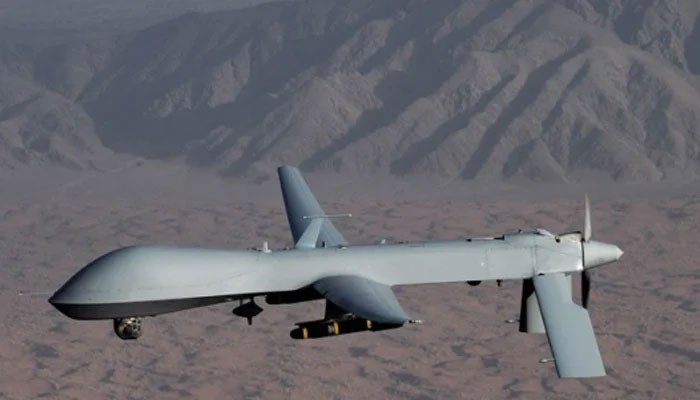[ad_1]
WASHINGTON: The US has announced the revised policy in connection with drone attacks being carried out worldwide against terrorists. According to the updated policy signed by US President Joe Biden, his prior approval is essential even against a suspected terrorist who can be targeted in ‘direct action.'
However, the revised policy will not apply to Iraq and Syria.
A description of the policy, along with a classified new counterterrorism strategy memo Biden has also signed, suggests that amid competing priorities in a turbulent world, the United States intends to launch fewer drone strikes and commando raids away from recognised war zones than it has in the recent past.
The policy requires Biden’s approval before a suspected terrorist is added to a list of those who can be targeted for “direct action,” in a return to more centralised control of decisions about targeted killing operations that was a hallmark of President Barack Obama’s second term. The Biden administration’s rules apply to strikes in poorly governed places where militants are active but that the United States does not consider to be “areas of active hostilities.”
Only Iraq and Syria — where U.S. troops and partners are fighting the remnants of the Daesh — are currently deemed to be conventional war zones where the new rules will not apply and commanders in the field will retain greater latitude to order counterterrorism airstrikes or raids without seeking White House approval, the official said. That means the rules will limit any such operations in several other countries where the United States has carried out drone strikes in recent years, including Afghanistan, Somalia and Yemen, as well as the tribal region of Pakistan.
The policy is said to declare that capturing is preferable to killing, requiring the military and the C.I.A. to evaluate the feasibility of a capture operation. It also requires them to obtain the consent of the State Department’s chief of mission in a country before carrying out an operation there, the official said.
By limiting targeting approval to specific, named people, the policy does not authorise a tactic that may increase the risk of mistakes that kill civilians: so-called signature strikes, attacking people without knowing their identities based on patterns that raised suspicions. Still, the rules permit seeking Biden’s permission for other types of strikes in extraordinary circumstances. And the rules do not require White House approval for strikes carried out in self-defence, such as the so-called collective self-defence of partner forces.
Thumbnail: Reuters
[ad_2]
Source link


